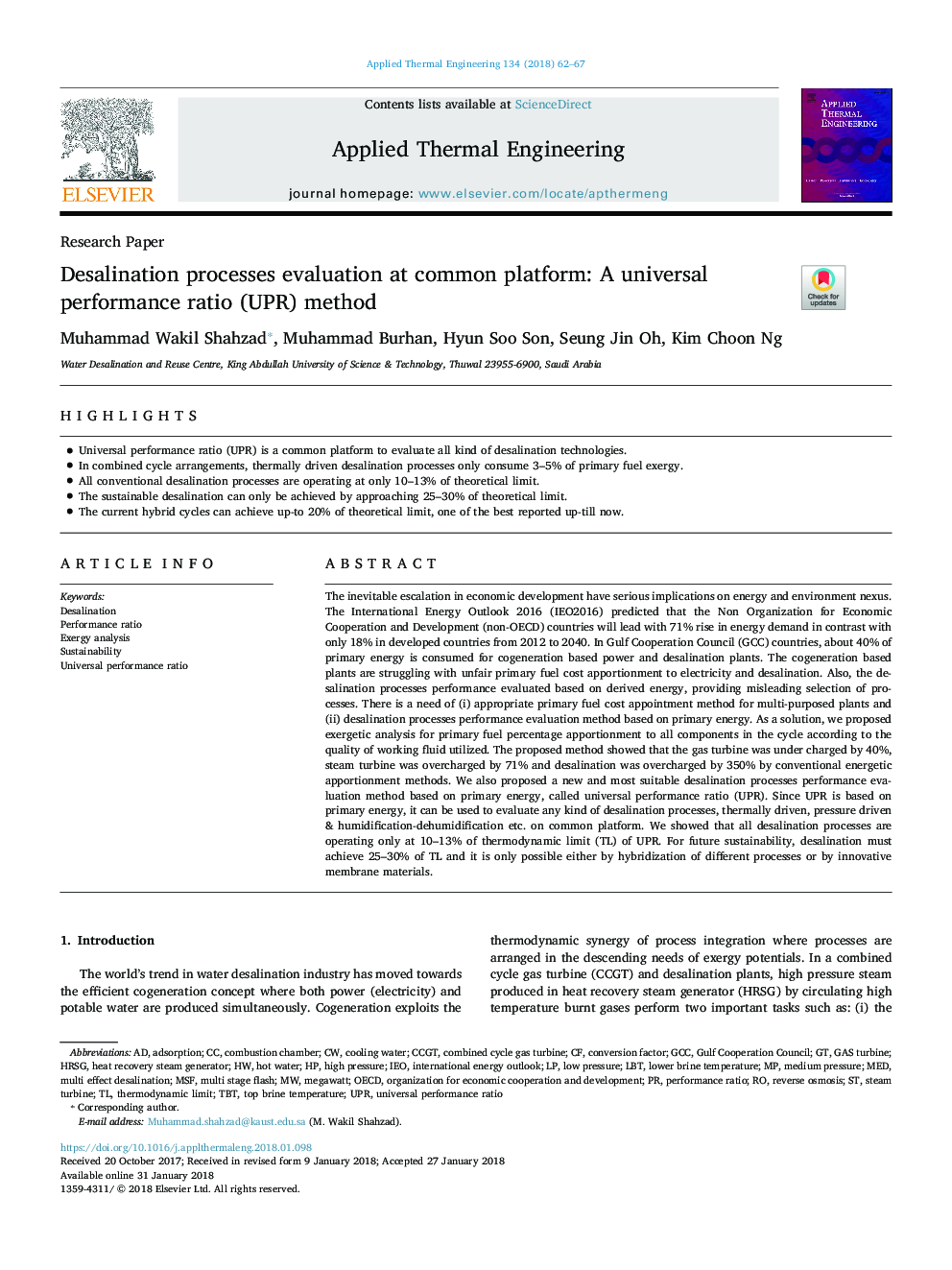| Article ID | Journal | Published Year | Pages | File Type |
|---|---|---|---|---|
| 7045770 | Applied Thermal Engineering | 2018 | 6 Pages |
Abstract
The inevitable escalation in economic development have serious implications on energy and environment nexus. The International Energy Outlook 2016 (IEO2016) predicted that the Non Organization for Economic Cooperation and Development (non-OECD) countries will lead with 71% rise in energy demand in contrast with only 18% in developed countries from 2012 to 2040. In Gulf Cooperation Council (GCC) countries, about 40% of primary energy is consumed for cogeneration based power and desalination plants. The cogeneration based plants are struggling with unfair primary fuel cost apportionment to electricity and desalination. Also, the desalination processes performance evaluated based on derived energy, providing misleading selection of processes. There is a need of (i) appropriate primary fuel cost appointment method for multi-purposed plants and (ii) desalination processes performance evaluation method based on primary energy. As a solution, we proposed exergetic analysis for primary fuel percentage apportionment to all components in the cycle according to the quality of working fluid utilized. The proposed method showed that the gas turbine was under charged by 40%, steam turbine was overcharged by 71% and desalination was overcharged by 350% by conventional energetic apportionment methods. We also proposed a new and most suitable desalination processes performance evaluation method based on primary energy, called universal performance ratio (UPR). Since UPR is based on primary energy, it can be used to evaluate any kind of desalination processes, thermally driven, pressure driven & humidification-dehumidification etc. on common platform. We showed that all desalination processes are operating only at 10-13% of thermodynamic limit (TL) of UPR. For future sustainability, desalination must achieve 25-30% of TL and it is only possible either by hybridization of different processes or by innovative membrane materials.
Keywords
IEOMulti stage flashMSFLBTGCCUPRHRSGTBTCCGTOECDCooling waterHot waterReverse OsmosisMEDconversion factorExergy analysisSteam turbineGas turbineCombined cycle gas turbineAdsorptionThermodynamic limitTop brine temperatureOrganization for Economic Cooperation and DevelopmentGulf cooperation councilHigh pressureMedium pressureLow pressureCombustion chamberHeat recovery steam generatormegawattPerformance ratiodesalinationSustainability
Related Topics
Physical Sciences and Engineering
Chemical Engineering
Fluid Flow and Transfer Processes
Authors
Muhammad Wakil Shahzad, Muhammad Burhan, Hyuk Soo Son, Seung Jin Oh, Kim Choon Ng,
